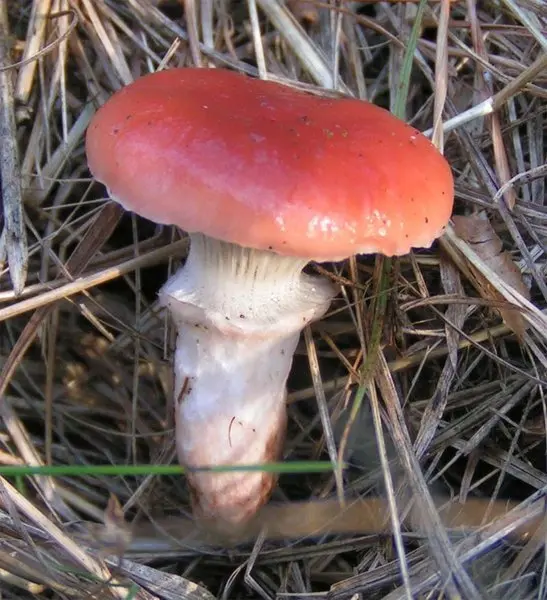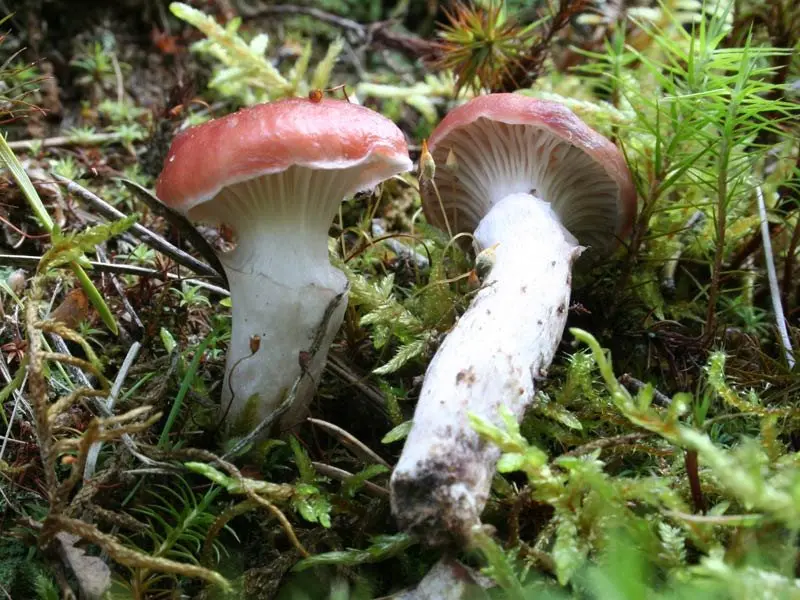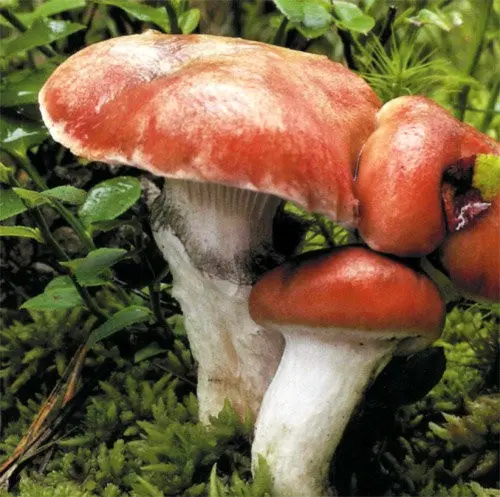Mokruha pink (Gomphidius roseus)
- Division: Basidiomycota (Basidiomycetes)
- Subdivision: Agaricomycotina (Agaricomycetes)
- Class: Agaricomycetes (Agaricomycetes)
- Subclass: Agaricomycetidae (Agaricomycetes)
- Order: Boletales (Boletales)
- Family: Gomphidiaceae (Gomphidiaceae or Mokrukhovye)
- Genus: Gomphidius (Mokruha)
- Type: Gomphidius roseus (Pink Mokruha)
- Agaricus clypeolarius
- Leucogomphidius roseus
- Agaricus roseus

Mokruha pink (Gomphidius roseus) has a cap 3-5 cm in size, convex, with a mucous skin, pink, later fading, yellowish in the middle, in old fruiting bodies with black-brown and black spots, in wet weather – mucous. The edge of the cap of old fruiting bodies is turned up. At first, the hat, with a rapidly disappearing private veil, is connected to the stem. Later, a wave-like ring remains from this coverlet on the leg. The plates are descending, thick, rare. The stem is cylindrical, rather strong, sometimes tapering at the base. The plates are infrequent, wide and fleshy, branching at the base. The pulp is dense, with an almost indistinguishable taste and smell, white, at the base of the leg it may be yellow. Spores are smooth, fusiform, 18-21 x 5-6 microns.
VARIABILITY
The stem is white with a pink or reddish tint at the bottom. The plates are white at first, but over time become ash-gray. The flesh is sometimes pinkish in color.

HABITAT
This rather rare mushroom grows singly or in small groups in coniferous forests, mainly in mountainous areas. Often it can be found next to the goat.
SEASON
Summer – autumn (August – October).
SIMILAR TYPES
This species can be confused with the Wet Purple, which, however, has a brick red stem.
NUTRITIONAL QUALITIES
The mushroom is edible, but of mediocre quality. In any case, the skin must be removed from it.

GENERAL INFORMATION
a hat diameter 3-6 cm; pink colour
leg 2-5 cm high; color whitish
records whitish
flesh white
smell no
taste no
Disputes Black
nutritional qualities mediocre









